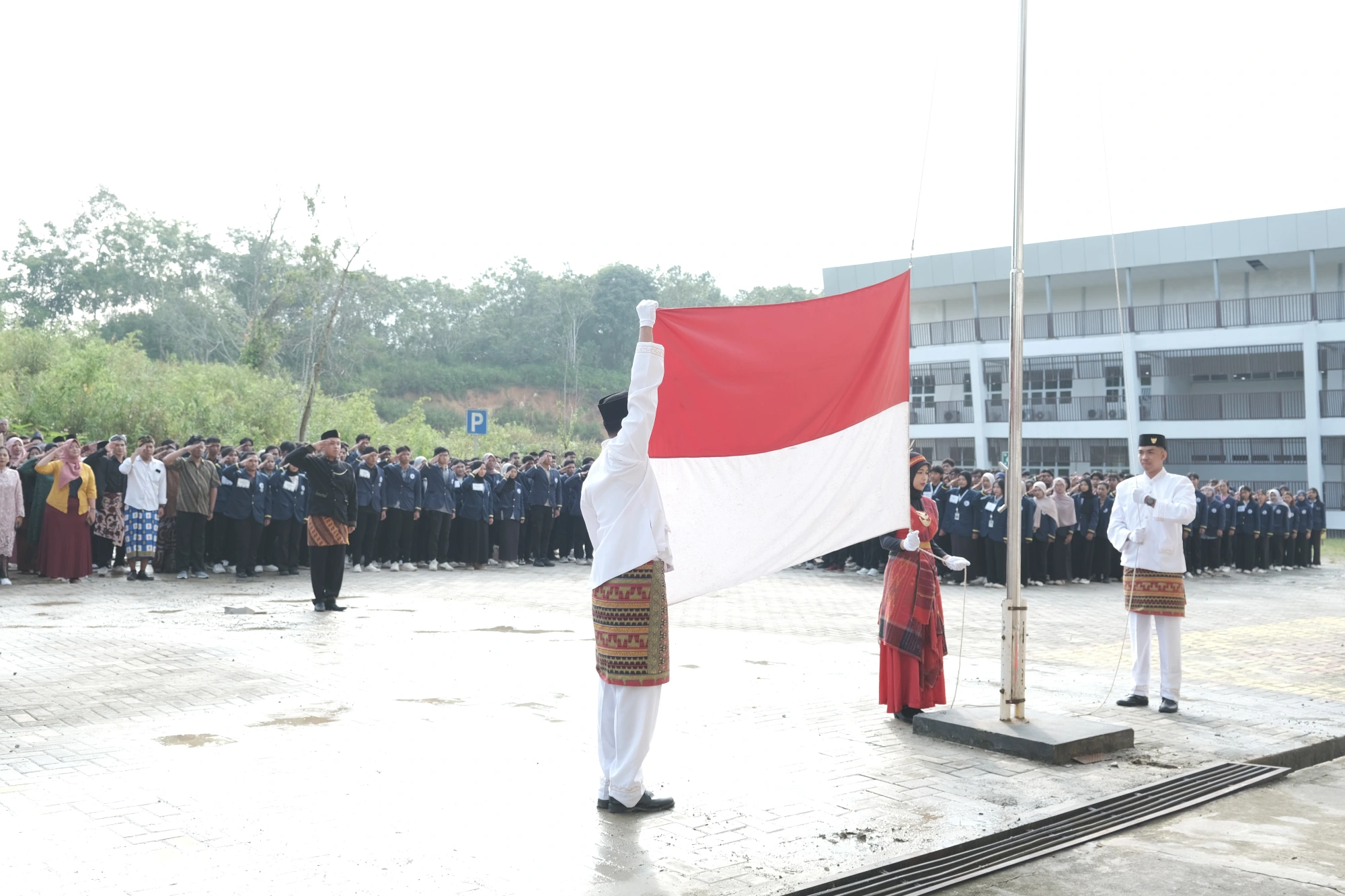Detail Berita
Free Nutritious Lunch Program: An Accessible Solution for Children and Adolescents' Nutritional Needs
.webp)
Isi Artikel
The Free Nutritious Lunch Program, also known as "Makan Siang Gratis," is an initiative funded with Rp10,000 per serving and organized by 190 Nutrition Fulfillment Service Units (Satuan Pelayanan Pemenuhan Gizi, SPPG) across Indonesia. This program aims to provide affordable, nutritious meals for children and adolescents in various regions.
According to a report published by Tempo on January 9, 2025, each meal served in this program is carefully designed to meet daily nutritional standards. The meals consist of four essential components: staple food, side dishes, vegetables, and fruits. Below is a detailed breakdown of the components in the meal:
1. Staple Food (Rice)
The recommended portion of rice in this program is 150 grams, equivalent to three scoops of rice. As an alternative to rice, participants can choose 300 grams of potatoes or 75 grams of dry noodles. Carbohydrates, found in rice, potatoes, and noodles, serve as the body’s primary energy source, making it crucial to consume them in the right amounts.
2. Side Dishes
The side dishes can consist of either animal-based or plant-based protein sources. Recommended animal-based options include 75 grams of mackerel, 2 pieces of skinless chicken (80 grams), 1 large egg (55 grams), or 2 pieces of beef (70 grams). For those who prefer plant-based proteins, alternatives like 100 grams of tofu or 2 pieces of tempe (50 grams) are available. Both animal and plant proteins are essential for body growth and repair.
3. Vegetables
The program suggests a vegetable portion of 150 grams, equivalent to a medium-sized bowl. Vegetables are rich in vitamins, minerals, and fiber, which are important for digestive health and boosting the immune system.
4. Fruits
To complement the meal, recommended fruits include 2 medium-sized pieces of papaya (150 grams), 2 medium-sized oranges (110 grams), or 1 small banana (50 grams). Fruits are packed with vitamin C and antioxidants, which support overall health.
Does This Program Meet Nutritional Standards?
According to Dr. Luciana B. Sutanto, a clinical nutrition specialist from the University of Indonesia, the meal portions provided in the Free Nutritious Lunch Program meet the nutritional standards for a single meal. Based on the 2019 Nutritional Adequacy Rates (AKG), children aged 7-9 years require approximately 1,650 calories per day, children aged 10-12 years need around 1,900-2,000 calories per day, and adolescents aged 13-18 years need about 2,100-2,650 calories per day. The portion sizes provided in this program adequately fulfill these caloric and nutritional needs.
Dr. Luciana further emphasized that the meals provided contain a balanced mix of carbohydrates, protein, fats, and micronutrients essential for growth and overall health. Therefore, the program not only meets national health and nutrition standards but also promotes a balanced diet for the participants.
Benefits of the Free Nutritious Lunch Program
This program offers significant benefits, particularly for children and adolescents who need optimal nutrition to support physical growth and cognitive development. With affordable pricing, it also helps families who struggle to provide nutritious meals for their children.
Additionally, this initiative contributes to addressing the issue of malnutrition in several areas. By providing meals with guaranteed nutritional content, the program helps reduce the incidence of stunting and other nutrition-related health problems in Indonesia.
Overall, the Free Nutritious Lunch Program represents a positive step forward in improving the health and well-being of the Indonesian population, especially for children and adolescents. It is hoped that the program will continue to expand so that more people can benefit from its advantages.
Source: Tempo, January 9, 2025.
Tags
Balikpapan Healty FoodBerita Terbaru
 (2).webp) News
News
BAPPEDA Follows Up on Discussions for ITK Road Access and Gate Construction
The Kalimantan Institute of Technology (ITK) is currently coordinating with Balikpapan's BAPPEDA and various related agencies to find solutions for its narrow road access and stalled land acquisition process, aiming to support the campus's growth and stud
 (1).webp) Academic
Academic
X-CITE 2025: Final Project Seminar and Exhibition of Electrical Engineering ITK
The X-CITE 2025 event, held on Saturday, May 4th, successfully showcased diverse and innovative final projects by Electrical Engineering students from the Kalimantan Institute of Technology (ITK), drawing significant interest from both within and outside
 News
News
ITK Commemorates National Education Day 2025 with a Solemn and Culturally Rich Ceremony
The Institut Teknologi Kalimantan (ITK) held a National Education Day (Hardiknas) ceremony on the morning of Friday, May 2, 2025, at the Laboratory Complex Courtyard (Labter).
 (1).webp)
.webp)
.webp)